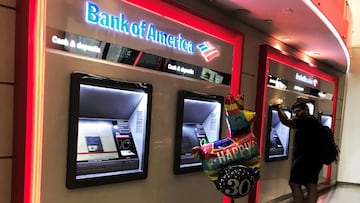How much cash should you keep in your house? The recommended quantity according an expert financial planner
A look at the risks and benefits of keeping cash at home... here is what financial planners recommend.


Though the FDIC eliminated much of the risk that a run private bank could leave customers without the funds they have deposited over the years, some financial experts argue that there are benefits to keeping some cash out of the banks. Critically, the FDIC only insures deposits up to $250,000 for certain account types. Some kid that their grandparents had money hidden in the mattress, a practice that became more common after the financial crash that led to the Great Depression, where millions saw their funds disappear.
But is this a safe practice?
The benefits of keeping money in the bank
The big banks will say that money is safer in their hands and that if invested in assets or a savings account, the money can be put to work to provide financial returns. However, these returns are often marginal for the average household and should not be overestimated.
The risks of keeping cash at home
Nevertheless, keeping money at home carries some risks. The first and most obvious is that if someone were to break in and steal it, the robber would need to be apprehended for you to see any of it returned unless you have insurance. Even in those cases, there are often limits on how much can be returned. Additionally, keeping cash on hand can pose issues, as proving to the insurance company that the money was stolen can be difficult.
If you choose to store money at home, it is best to keep it in a safe or lock box that very few people know the code for, and never discuss the presence of the cash in public.
What the experts recommend
Some experts believe that the benefits of keeping cash at home outweigh the risks. The 2008 financial crisis caused millions to lose their investments, leading to a decrease in public confidence in the security provided by banks.
Related stories
Moreover, as many residents across the country can confirm, the formal economy that relies on the Internet can suffer during natural disasters. If you live in an area prone to such events, having cash on hand can make a significant difference. It can mean the ability to buy groceries and other essential goods when the power is out. Certified financial planner (CFP) Eliott Pepper told Bankrate that having enough cash to cover a household’s basic needs for one or two months should be sufficient. Pepper also noted that as more people look to digital payment methods and businesses follow suit, keeping cash at home becomes “provide[s] protection in an extremely adverse scenario.” For those at Bankrate, the amount could be somewhere in the realm of $1,000. However, Danielle Miura, also a CFP
Danielle Miura, a CFP and owner of Spark Financials, told Yahoo! Finance gave a much lower number, around $100 to $200, and instead focused on the protections afforded by a high-yield savings account. Muira’s approach allows for enough cash to be kept on hand to ensure someone can get to the bank and take out any additional funds needed.
Complete your personal details to comment